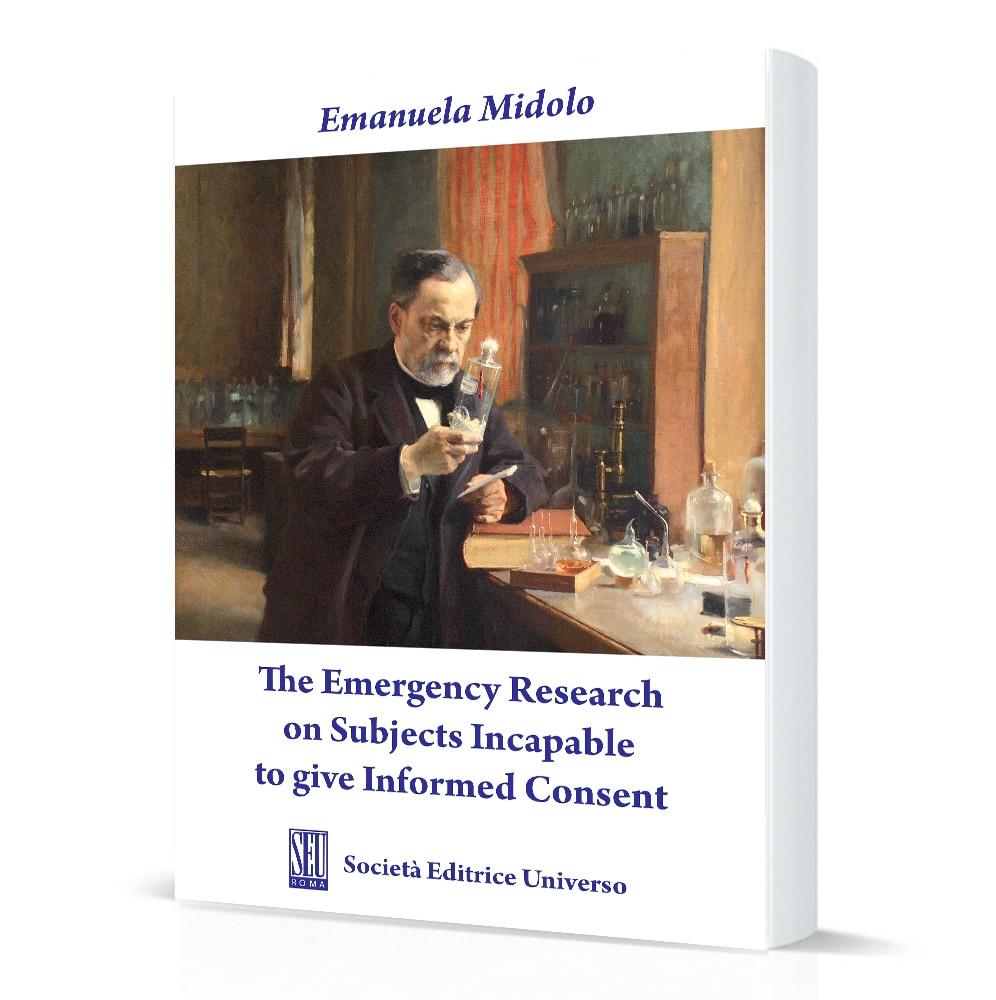In this volume, Emanuela Midolo has produced a legal and ethical complete overview about the criticisms on emergency research conduction, both at International and European level. To date, this represents a valid scientific contribution, which deserves a large disseminate for the exhaustive analysis, which was, be conducted by the author regarding this topic which is at the centre of today EU debate.
The Emergency Research on Subjects Incapable to give Informed Consent
di Emanuela Midolo
€20.00
Descrizione
The human subjects’ experimentation is one of the critical problems that are at the origin of bioethics because of intrinsic ethical dilemmas. Only with the affirmation of the “classical” ethical principles exposed, in 1978, in The Belmont Report by US National Commission for the Protection of the Human Subject of Biomedical and Behavioral Research – the respect of the persons, beneficence/non-maleficence and justice – the researchers had precise indications on ethical conduct in this complex field of research.
This Commission was appointed with the aim to identify the criteria to conduct and evaluate biomedical research according to US legislation, following the various abuses made by researchers, and define ethical guidelines, which should be followed to assure that all the experimental protocols have to comply them.
The Belmont Report create several important focus on research ethics and since 1978 all world human experimentation was conducted in the light of its ethical principles. Nowadays, it is possible to affirm that the experimentations on human subjects have done more for the respect of ethical guidelines which was introduced in the clinical scenario, both at International and European level. In contrast with the United States guidelines and regulation, in Europe recently was introduced the possibility to conduct a particular type of clinical trials on vulnerable subjects.
This is the case of emergency research, which undoubtedly has more ethical criticality, especially because it is a new technology or a new drug, which must be tested on the vulnerable subject in a severe clinical condition. Unfortunately, several member states, which compose the European Union, do not have unique legislation and ethical concepts which could guarantee a homogeneous application of ethical guidelines in emergency research. Indeed, some EU states have provided to ratify the Oviedo Convention and related protocols – which more have welldefined guidelines for subject incapable to consent at enrolment in emergency clinical trials – but some other member states no have provided to finish the process ratification and so they remain without application of Oviedo Convention.
Moreover, in this context, it is necessary to mention other several legislative differences, which produce more difficulties for the respect and application of new EU regulation and of ethical conduct in the field of emergency research. For example, Italy is one of the EU states which do not have the possibility to nominate a prior legal authorized representative and this will produce more technical and ethical difficulties in the patients’ will respect.
In this volume, Emanuela Midolo has produced a legal and ethical complete overview about the criticisms on emergency research conduction, both at International and European level. To date, this represents a valid scientific contribution, which deserves a large disseminate for the exhaustive analysis, which was, be conducted by the author regarding this topic which is at the centre of today EU debate.
Antonio G. Spagnolo
Professor of Bioethics
At Università Cattolica del S. Cuore, Rome
Informazioni aggiuntive
| ISBN | 978-88-6515-170-9 |
|---|---|
| Pubblicato | Novembre 2020 |
| Formato | Brossura |
| Pagine | 104 |
| Interno | B/N |
| Lingua | Italiano |




